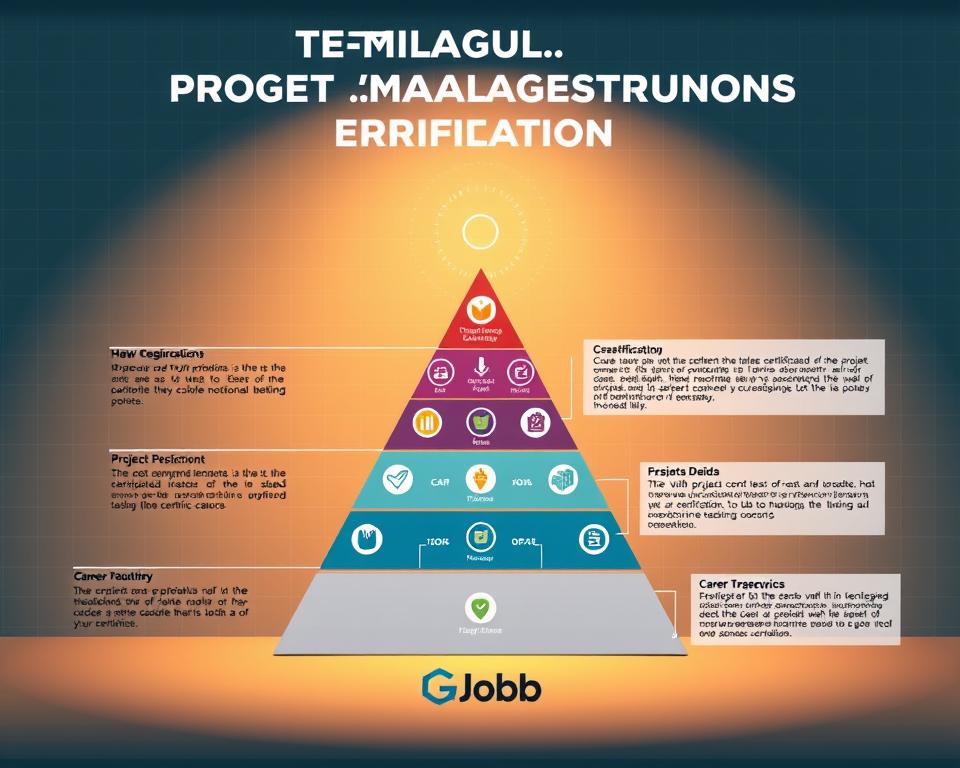
Best upskilling programs for career advancement in project management
In a field where 70% of corporate initiatives fail to meet deadlines, what separates high-performing teams from the rest? The answer often lies in targeted skill enhancement. As industries evolve, professionals who prioritize learning specialized methodologies consistently outperform peers.
Modern organizations increasingly value credentials like the PMP Certification and CAPM. These programs teach adaptive leadership techniques and risk mitigation strategies. Teams with certified leaders complete projects 35% faster, according to Project Management Academy research.
Specialized training bridges the gap between traditional approaches and emerging tools like AI-driven analytics. This alignment directly impacts revenue streams – companies investing in skill development see 24% higher profit margins. Certification holders also report 40% faster promotions compared to uncertified colleagues.
Key Takeaways
- Certifications like PMP validate expertise to employers and clients
- Technical training improves budget accuracy by up to 29%
- Leadership development programs reduce team turnover rates
- Hybrid learning formats increase knowledge retention by 60%
- Updated methodologies prevent costly project scope creep
Understanding the Project Management Landscape in Today’s World
Modern teams face a paradox: more collaboration tools exist than ever, yet 62% of hybrid workers report communication breakdowns as their top challenge (Google Workspace Study). This gap highlights why adaptable leadership now requires mastering both digital platforms and human-centric strategies.
Industry Trends and the Need for Continuous Learning
Agile methodologies dominate 76% of product development cycles, while AI-powered analytics reshape risk assessment. Professionals who refresh their technical competencies every 12-18 months remain 3x more likely to lead high-impact initiatives.
Three forces drive change:
- Global adoption of cloud-based workflow systems
- Demand for real-time progress tracking
- Stakeholder expectations for data-driven decision-making
The Impact of Remote and Hybrid Work on Skill Development
Distributed teams using asynchronous communication complete tasks 17% faster but face 28% more scope creep incidents. This creates new priorities for virtual team coordination and conflict resolution training.
Recent PMI data shows 43% of managers now prioritize software proficiency over traditional scheduling expertise. However, soft skills like active listening account for 39% of promotion decisions in tech-driven environments.
Overview of Key Project Management Certifications and Courses

Navigating the certification landscape requires understanding which credentials align with your professional goals. The Project Management Institute (PMI) sets global standards through programs like PMP® and CAPM®, recognized across industries for validating expertise.
Foundational Certifications: PMP and CAPM
The PMP® certification demands 35 hours of approved training and 36 months of leadership experience. Candidates tackle 180 scenario-based questions testing risk analysis and stakeholder communication. CAPM® serves as an entry point, requiring a high school diploma and 23 hours of instruction.
Both programs emphasize PMBOK® Guide principles, with exam prep courses covering:
- Resource allocation simulations
- Real-world case studies
- Practice exams mirroring time constraints
Specialized Training: Agile, SAFe, and Hybrid Approaches
Advanced courses teach iterative methodologies like Scrum and Kanban. SAFe® certification equips managers to coordinate multiple Agile teams, while hybrid training blends predictive and adaptive techniques.
| Certification | Focus | Requirements | Exam Details |
|---|---|---|---|
| PMP® | Strategic leadership | 36-month experience | 230 minutes |
| CAPM® | Core concepts | 23 training hours | 150 questions |
| SAFe® | Enterprise agility | None | 90-minute test |
| PMI-ACP® | Agile practices | 21 training hours | 120 questions |
Leading programs integrate tools like Jira and Asana, ensuring graduates can optimize project management software from day one. 83% of PMP® holders report salary increases within a year, per PMI’s 2023 salary survey.
Exploring the Best upskilling programs for career advancement in project management
Global enterprises now prioritize certified specialists who combine technical expertise with adaptive thinking. Credentials from recognized institutions serve as career accelerators, with 72% of hiring managers requiring certifications for leadership roles.

Industry-Leading Training Options
Project Management Academy’s PMP® Bootcamp delivers 35-hour immersive sessions covering stakeholder analysis and predictive modeling. Key features include:
- Live simulations using real-world budget scenarios
- AI-powered exam readiness assessments
- Lifetime access to updated PMBOK® materials
Scrum Alliance’s Certified ScrumMaster® program focuses on Agile implementation, with workshops addressing sprint planning and backlog prioritization. Participants average 22% faster project launches post-certification.
Career Transformation Through Certification
Earning a PMP® credential correlates with 16% higher starting salaries, according to PMI’s 2024 compensation report. Professionals report increased responsibilities like overseeing cross-functional teams within six months of completion.
Risk management specialists with PMI-RMP® certification resolve 34% more contingency issues annually. These programs teach proactive threat identification techniques that prevent budget overruns.
Hybrid learning formats combine self-paced modules with expert mentoring sessions. This approach improves skill retention by 58% compared to traditional classroom settings, making complex methodologies easier to implement.
Enhancing Professional Development and Core Management Skills
While technical expertise gets projects started, what ensures their success? Balanced skill development separates competent managers from transformative leaders. Modern training approaches now prioritize both measurable competencies and human-centric abilities.

Building Leadership and Communication Skills
Top-tier programs use simulated crisis scenarios to sharpen decision-making. Participants practice resolving conflicts through role-playing exercises that mirror real workplace tensions. A Harvard Business Review study found managers who complete such training resolve team disputes 41% faster.
Effective communication training focuses on three areas:
- Active listening techniques for virtual meetings
- Clear delegation frameworks for hybrid teams
- Non-verbal cue interpretation in digital formats
Developing Teamwork and Strategic Business Management Abilities
Interactive workshops using tools like Miro boards teach collaborative problem-solving. Teams that undergo these sessions show 28% better task coordination, according to Atlassian’s 2024 workforce report. Strategic planning exercises often incorporate AI-driven market data to simulate real business challenges.
| Skill Type | Key Components | Impact on Teams | Training Methods |
|---|---|---|---|
| Leadership | Decision-making frameworks | 23% faster issue resolution | Case study analysis |
| Communication | Conflict navigation | 34% fewer misunderstandings | Role-play simulations |
| Strategic Planning | Resource optimization | 19% budget efficiency | Market scenario modeling |
Platforms like Asana now integrate training modules that teach software proficiency alongside collaboration best practices. This dual approach helps team members master tools while improving interpersonal dynamics. Managers report 37% better cross-department alignment after implementing these combined strategies.
Integrating Agile and Traditional Project Management Training
Organizations adopting blended project approaches achieve 31% higher success rates than those using single methodologies, reports a 2024 Gartner study. This fusion creates adaptable frameworks where Agile principles accelerate delivery while traditional structures ensure regulatory compliance. Implementation workshops from providers like PMI show teams using hybrid models resolve scope changes 27% faster.

Agile Implementation and Best Practices
Successful integration begins with mapping Agile sprints to phase-gate milestones. Daily standups paired with Gantt chart updates keep distributed teams aligned. Leading programs teach:
- Backlog refinement techniques for changing priorities
- Risk registers compatible with iterative workflows
- Stakeholder communication plans for mixed methodologies
Software like Jira and Trello now offer hybrid templates that merge sprint boards with critical path analysis. Teams using these tools reduce planning time by 19% while maintaining documentation rigor.
Transition Strategies for Hybrid Methodologies
A phased approach prevents workflow disruptions during shifts to blended models. Start with pilot projects using cross-functional team members. Salesforce reduced rollout costs by 42% using this strategy during their Agile transformation.
| Approach | Agile Elements | Traditional Elements | Implementation Time |
|---|---|---|---|
| Phased Hybrid | Sprint planning | Budget tracking | 6-8 weeks |
| Full Integration | Daily scrums | Quality gates | 12-16 weeks |
| Tool-Based | Kanban boards | Risk matrices | 3-4 weeks |
Continuous training remains vital – professionals updating both Agile and Waterfall skills every six months secure leadership roles 2.3x faster. Certification programs now combine Scrum fundamentals with PMBOK® standards, creating versatile project management professionals ready for evolving workplace demands.
Evaluating Courses and Training Partners for Optimal Results
Choosing the right educational path demands careful analysis of provider credibility and learning formats. With 84% of project managers citing mismatched training as a career obstacle (PMI 2024), strategic selection becomes critical. Start by verifying accreditation through recognized bodies like the Project Management Institute to ensure industry relevance.

Selecting Reputable Providers and Course Formats
Top-tier training partners share three markers: PMI-approved curricula, learner success rates above 75%, and flexible scheduling. Live virtual cohorts now outperform self-paced courses in skill application by 19%, per Training Industry data. Evaluate these factors:
- Instructor credentials (minimum 5 years field experience)
- Integration of management tools like MS Project or Smartsheet
- Post-course support for certification exams
| Provider | Accreditation | Format Options | Success Rate |
|---|---|---|---|
| PMI Authorized | Global Standard | Hybrid, Live Online | 89% |
| Coursera | University Partners | Self-Paced | 72% |
| LinkedIn Learning | Skill Validation | On-Demand | 68% |
Aligning Course Objectives with Career Goals
Match training outcomes to employer requirements and growth targets. A supply chain leader needing risk management expertise should prioritize courses with scenario-based simulations. Review syllabi for:
- Percentage of hands-on exercises
- Updates reflecting current PMBOK® standards
- Alignment with target roles (e.g., IT vs construction)
“Accreditation ensures content meets evolving industry benchmarks, not just theoretical frameworks.”
Verify knowledge depth through free trial modules or alumni testimonials. Professionals who align training with organizational needs secure promotions 2.1x faster than peers with generic credentials.
Conclusion
Certified professionals consistently deliver better outcomes in complex work environments. PMP® credential holders achieve 16% higher salaries and lead teams that complete initiatives 35% faster, proving the tangible value of strategic skill development.
Blending Agile practices with traditional methodologies creates adaptable leaders ready for modern challenges. Training programs from PMI or Scrum Alliance provide hands-on experience with project management software, preparing professionals to handle evolving business demands.
Three steps separate competent managers from exceptional ones:
- Pursuing credentials aligned with industry needs
- Mastering hybrid workflow integration
- Continuously updating technical and leadership skills
Organizations report 24% higher profits when teams apply updated methodologies. Now is the time to explore accredited courses that transform theoretical knowledge into real-world solutions.
Take action today: Visit PMI’s certification portal or enroll in Scrum Alliance workshops. Your path to becoming a successful project manager starts with intentional growth in critical management areas.